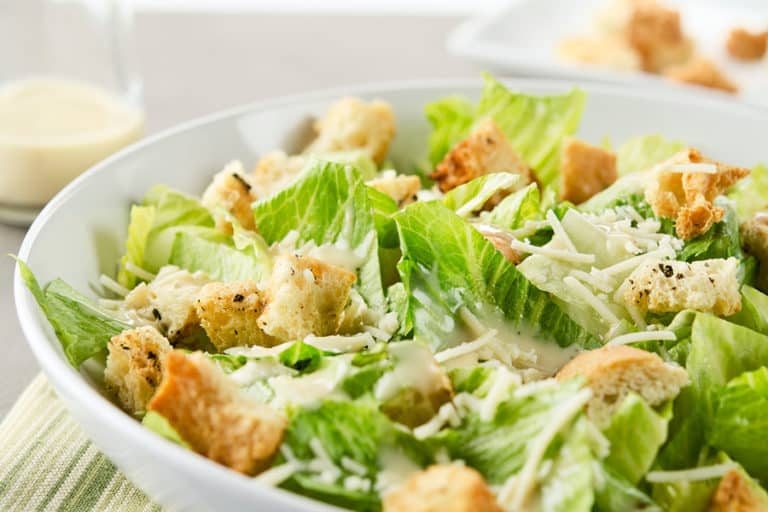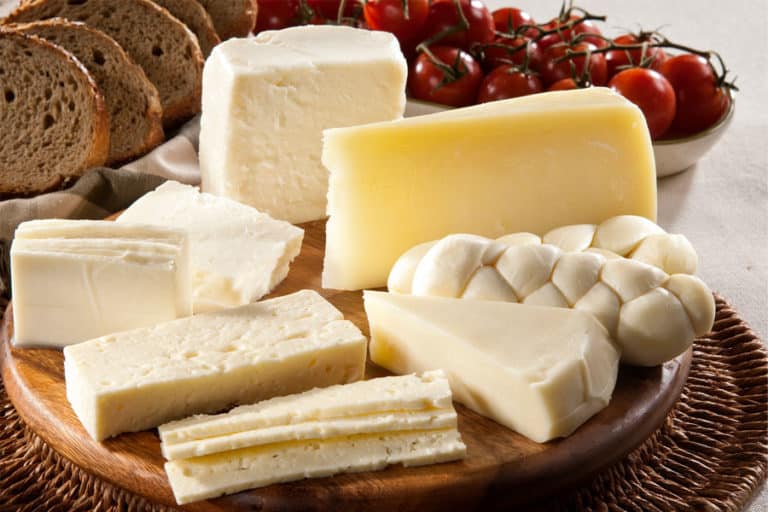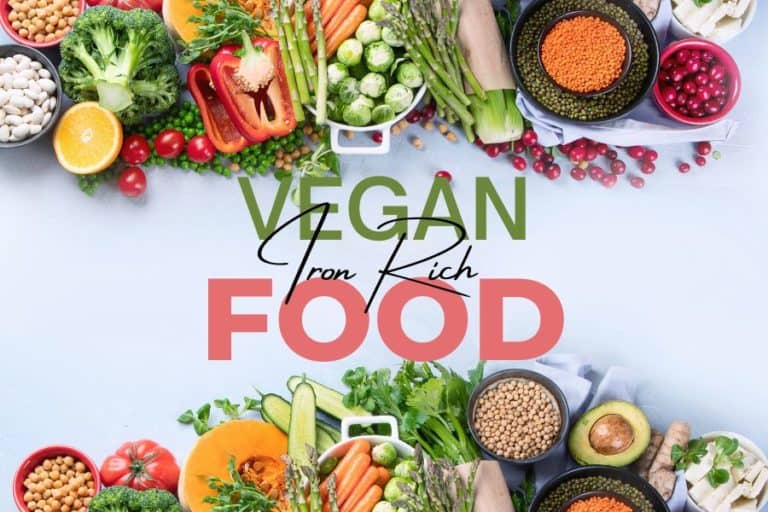The Vegan Mediterranean Diet: Diet plan, Benefits, and More

Definition | How to follow | 7-day diet plan | Weight loss | Factors to consider | Benefits | Supplements
The Mediterranean diet has been around for centuries and is renowned for its health benefits. It is based on traditional diets popular in countries along the Mediterranean Sea.
However, the diet became popular in 1993, [1]One Green Planet: The Vegan Mediterranean Diet and recently it has been under the radar of vegans as it is a diet relatively similar to the vegan diet.
Since then, the vegan version of the Mediterranean diet has become increasingly popular.
What is a vegan Mediterranean diet?
A vegan Mediterranean diet is a plant-based diet that follows the same guidelines as a traditional Mediterranean diet but with no animal products.
Here is a detailed explanation of how the diet is designed:
Key principles of a vegan diet
Vegan diets follow the principles of veganism, a lifestyle that excludes all animal products and by-products from one’s diet, including meat, fish, eggs, dairy, and honey.
Veganism is based on the belief that all sentient beings should be treated with respect and kindness.
Key principles of a Mediterranean diet
The MedDiet is traditional to the Mediterranean region and closely tied to olive cultivation (Greece and Southern Italy).
It has been globally recognized as one of the healthiest diets and is linked with low rates of chronic diseases and high adult life expectancy [2]Journal of Internal Medicine: The Mediterranean diet and health: a comprehensive overview.
The Mediterranean diet limits highly processed foods while focusing on plant-based foods such as fruits, vegetables, legumes, nuts, whole grains, and healthy fats such as olive oil.
However, it also includes moderate amounts of fish and seafood, dairy products in moderation, and limited amounts of red meat.
The vegan Mediterranean diet principles
The vegan Mediterranean diet combines vegan and traditional Mediterranean principles.
It emphasizes consuming whole foods like fruits, vegetables, legumes, nuts, and grains while abstaining from processed foods and animal foods.
However, an individual on a vegan Mediterranean diet only limits himself to the diet and not a vegan lifestyle.
How to follow a vegan Mediterranean diet?
Here are some key tips that can help make your transition to a vegan Mediterranean diet easier:
- Eat a variety of plant-based foods such as legumes, nuts and seeds, fruits, vegetables, and grains.
- Limit processed foods and refined carbohydrates. Instead, prepare home-cooked food using vegan Mediterranean recipes.
- Include healthy plant-based proteins like tofu, tempeh, and seitan.
- Use plant-based milk types such as almond, coconut, and oat milk.
- Choose healthy fats like extra virgin olive oil and avocado for cooking and salads.
- Incorporate more plant-based calcium, iron, and zinc sources into your diet.
7-day vegan Mediterranean diet plan
Here is a 7-day vegan Mediterranean diet plan to get you started:
| Days | Breakfast | Lunch | Snack | Dinner |
| Day 1 | Overnight oats with coconut milk, chia seeds, and raspberries | Grilled veggie wrapped in whole wheat pita bread with hummus | Roasted chickpeas | Bean burrito bowl |
| Day 2 | Avocado toast with tomatoes and lemon juice | Vegetable stir-fry with tofu and brown rice | Celery sticks with almond butter | Lentil soup with roasted vegetables |
| Day 3 | Smoothie bowl with banana and spinach | Mediterranean salad with olives, artichokes, vegan cheese, and balsamic vinegar | Apple slices with vegan peanut butter | Portobello mushroom burgers |
| Day 4 | Chia pudding with coconut milk and berries | Quinoa and roasted vegetable salad | Roasted almonds | Mediterranean pizza with olives, tomatoes, and artichokes |
| Day 5 | Oatmeal with banana and walnuts | Lentil soup with spinach and kale | Roasted edamame beans | Stuffed bell peppers with quinoa and black beans |
| Day 6 | Almond butter toast with banana slices | Mediterranean wrap with hummus, olives, tomatoes, and spinach | Rice cakes with almond butter | Vegetable stir-fry with tofu and brown rice |
| Day 7 | Baked oatmeal with blueberries and walnuts | Chickpea salad with tomatoes, cucumbers, sweet potatoes, olives, and balsamic vinegar | Roasted chickpeas | Veggie burger with sweet potato fries. |
Vegan Mediterranean diet for weight loss
Here is a thorough analysis of the Mediterranean diet and weight loss:
Weight loss with the Mediterranean diet
There are conflicting opinions on the relation between the Mediterranean diet and weight loss as the Mediterranean diet by itself has effects on weight only if energy restrictions [3]PubMed: The role of the Mediterranean diet on weight loss and obesity-related diseases are involved.
However, this diet emphasizes plant-based foods, which are low in calories but high in essential vitamins and minerals. Thus there could be a high possibility of losing weight compared to a Western diet.
Additionally, focusing on whole foods and limiting processed foods makes maintaining and losing weight healthily possible.
Weight loss with a “greener” Mediterranean diet
Following a “greener” Mediterranean diet may lead to greater weight loss.
This is because the “greener” Mediterranean diet emphasizes nutrient-rich foods while reducing the intake of animal protein and calorie-dense foods with plant-based substitutes.
Note: This makes it closer to a vegan Mediterranean diet but not as strict.
This diet also includes physical activity and 3-4 cups of green tea, and 3-4 cups of 100gm of a plant protein shake a day. Studies [4]PubMed: The effect of green Mediterranean diet on cardiometabolic risk; a randomised controlled trial show this might amplify the beneficial cardiometabolic effects of the Mediterranean diet.
Moreover, studies [5]PubMed: Effect of green-Mediterranean diet on intrahepatic fat: the DIRECT PLUS randomised controlled trial state the “green” Med diet can possibly double IHF (intrahepatic fat) loss more than other healthy nutritional strategies and reduce NAFLD (non-alcoholic fatty liver disease) in half.
Weight loss with a Vegan Mediterranean diet
A “vegan” Mediterranean diet can potentially help individuals lose weight.
Studies [6]Journal of the American Nutrition Association: A Mediterranean Diet and Low-Fat Vegan Diet to Improve Body Weight and Cardiometabolic Risk Factors: A Randomized, Cross-over Trial show that a low-fat vegan diet led to a more significant reduction in weight (6.4 kg), fat mass (3.8 kg), and visceral fat (429 cm3) than a Mediterranean diet does.
The Mediterranean diet is naturally low in unsaturated fat as it avoids calorie-dense foods like processed and refined goods. Thus, combining it with a vegan diet can positively affect weight loss like the ” green” Mediterranean diet.
Factors to keep in mind when on a vegan Mediterranean diet
Since a vegan Mediterranean diet abstains from animal products, individuals may lack certain essential vitamins and nutrients that are mostly derived from animal foods.
Here are some noteworthy points to remember before adopting a vegan Mediterranean diet:
1. Consult your doctor/dietician
It is always advisable to consult a doctor or dietician before starting any dietary regime. A professional can also provide suggestions and tips for maintaining proper nutrition in the long term as per your physical requirements.
2. Prioritize omega-3 fatty acids
Omega-3 fatty acids are essential for good health but cannot be produced by the body itself. Hence, they are usually sourced from animal products like fish.
Thus, a vegan’s regular meals should include plant-based sources of omega 3 as they can not consume fish like flaxseeds, chia seeds, and walnuts.
3. Be smart about protein intake
A vegan Mediterranean diet will significantly reduce the intake of animal proteins. So, it’s important to be mindful and ensure that you consume sufficient amounts of proteins from plant sources like legumes, tofu, tempeh, quinoa, and nuts.
4. Incorporate adequate vitamin B12
Vitamin B12 is generally found in animal products like fish, eggs, and dairy. Take a vegan supplement or opt for fortified foods like nutritional yeasts, plant-milks, and breakfast cereals to make up for it.
5. Take adequate calcium
Calcium is an important mineral that helps strengthen bones and teeth as well as helps in muscle functioning. Leafy greens and legumes are good vegan calcium sources. However, they might not provide enough to meet your daily needs.
6. Go for a variety
A vegan Mediterranean diet encourages an abundance of plant foods like fresh fruits, vegetables, nuts, and seeds. Consume a variety of these in order to get the right balance of nutrients needed for good health.
Benefits of a Vegan Mediterranean diet
Here are some benefits of plant-based diets like the vegan Mediterranean diets:
1. Improved heart health
Studies show that well-planned plant-based diets rich in nuts and whole grains can reduce the risk of cardiovascular diseases and stroke [7]National Library of Medicine: Plant-based diets and cardiovascular health. So, a vegan Mediterranean diet can also possibly be beneficial in reducing heart disease.
2. Weight management
A vegan Mediterranean diet is low in saturated fat and calories, potentially leading to healthy weight loss.
3. Reduced chronic inflammation
Vegan [8]Arthritis: Do Vegan or Vegetarian Diets Help Reduce Arthritis Inflammation? and Mediterranean diets are both rich in antioxidants [9]National Library of Medicine: Mediterranean Diet as a Tool to Combat Inflammation and Chronic Diseases. An Overview. Thus, a vegan Mediterranean diet can be linked to lower levels of inflammation in the body.
4. Improved gut health
A vegan Mediterranean diet can help improve your digestion due to its high fiber content which helps nourish healthy gut bacteria.
Do you need to take supplements on a vegan Mediterranean diet?
A vegan Mediterranean diet can lead to nutrient deficiencies if not appropriately followed. Thus, it is important to take supplements when needed.
A regular Mediterranean diet, in its authentic way, includes a certain amount of animal products which helps the body maintain a nutritional balance.
However, a “vegan” Mediterranean diet eliminates the possibility for the body to receive those nutrients.
Iron, calcium, vitamin D, and B12 are essential vitamins that may need to be supplemented to maintain good health.
However, always consult a doctor or dietician before making any changes to your diet and supplement routine.
Note: Always consult a doctor or dietician before making any changes to your diet and supplement routine.
Conclusion
A vegan Mediterranean diet offers several health benefits. Following the diet is also relatively easy and can be systematically incorporated into your life.
It is important to consult your personal dietician or doctor before making any changes in your diet to ensure that you are getting the right balance of nutrients as needed by your body.
References
| ↑1 | One Green Planet: The Vegan Mediterranean Diet |
|---|---|
| ↑2 | Journal of Internal Medicine: The Mediterranean diet and health: a comprehensive overview |
| ↑3 | PubMed: The role of the Mediterranean diet on weight loss and obesity-related diseases |
| ↑4 | PubMed: The effect of green Mediterranean diet on cardiometabolic risk; a randomised controlled trial |
| ↑5 | PubMed: Effect of green-Mediterranean diet on intrahepatic fat: the DIRECT PLUS randomised controlled trial |
| ↑6 | Journal of the American Nutrition Association: A Mediterranean Diet and Low-Fat Vegan Diet to Improve Body Weight and Cardiometabolic Risk Factors: A Randomized, Cross-over Trial |
| ↑7 | National Library of Medicine: Plant-based diets and cardiovascular health |
| ↑8 | Arthritis: Do Vegan or Vegetarian Diets Help Reduce Arthritis Inflammation? |
| ↑9 | National Library of Medicine: Mediterranean Diet as a Tool to Combat Inflammation and Chronic Diseases. An Overview |







